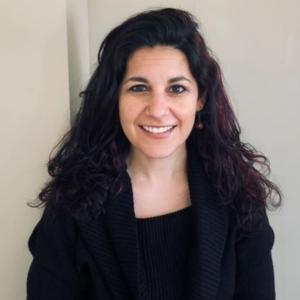Health care clinics should continue to look “in-house” when addressing racial-ethnic dynamics, researchers from the University of Colorado School of Medicine say in a new qualitative study.
“This study reaffirms what many people of color in health clinics feel and experience,” says Laura Ramzy, PhD, assistant professor of family medicine, and lead co-author of the paper published this month in the Annals of Family Medicine.
Ramzy and a group of researchers interviewed 60 participants in health clinics across the Denver metro region, finding that many people of color in support staff roles face hidden challenges and discrimination in the workplace. Researchers say that power dynamics perpetuate inaction, while relationship building and taking action foster safety and equity. They also say that system-level change is needed to support a cultural shift.
Elevating support staff experiences
Ramzy, a psychologist, says she was inspired to lead the study after she was approached by a Latina trainee looking for guidance after several unpleasant experiences in a local clinic.
“I validated those concerns because as a woman of color, I could identify and understand what they were describing, which is nothing overt, but lots of under-the-radar type stuff,” Ramzy says. “To the supervisor’s credit, they took it seriously, but also recognized that these are issues that are pervasive in society and happening across institutions.”
Ramzy says as a researcher she also wanted to see an effort to include more support staff in scientific literature, especially given overlapping minoritized identities. Nearly three-quarters of the survey’s participants who were in support staff roles also identified as a person of color.
“There was a flood of participants. In three months, we were able to interview 60 people,” Ramzy says. “Seventy percent of people who wanted to be involved were support staff and 68% were people of color. This reinforced to us that this is an important topic.”
‘I’m going to keep going’
CU Department of Family Medicine assistant professor Samantha Monson, PsyD, who also co-authored the study, says support staff can provide crucial insight into future diversity, equity, and inclusion (DEI) efforts.
“By uplifting these voices, there's increased awareness. Hopefully, people will feel that they can come forward without concern for being invalidated,” she says.
Throughout the interviews, people of color participants across roles said they experience “constant internal negotiation around expressing thoughts, ideas, and needs while maintaining relationships and avoiding reinforcement of stereotypes associated with their identities.”
Many participants said they feel that emotional effort is constantly demanded and they must regularly assess the “trustworthiness and psychological safety of relationships with coworkers and management; weighing the energy needed and risk of responding to a race-related event in a fast-paced environment; and second-guessing their own and others’ interpretation of and response to a race-related event.”
One participant, a support staff member of color, told researchers in an interview, “I can’t lie to you and [say], ‘Oh I’m happy, that didn’t affect me.’ Yes, I’m upset, but I’m going to keep going ... but on the inside, we’re not okay.”
After given the option of having a person of color conduct the interview, all participants who identified as a person of color opted to have an interviewer of color - a detail Ramzy and Monson say is an important part of their methodology.
“To me that really speaks to that rapport and trust that's there when you're talking about these very personal, very vulnerable issues,” Ramzy says.
Finding opportunity in validation
The researchers hope their findings will help unlock conversations in various clinics across the country.
“If this sparks anything for people in leadership roles, I hope that it’s to listen and believe the people who are telling you their stories,” Monson says. “Hopefully this provides validation for when people are brave enough to share their experiences. As a leader, you can attend to the fact that perhaps your power and privilege may mean you personally don’t have these experiences, but it doesn't mean that they aren't very real. We hope that by uplifting these voices, there's increased awareness and that people can come forward without concern for being invalidated.”
“Maybe people will look at this study and ask themselves what’s going on in their own clinic or system,” she continues. “We know that these issues are ubiquitous across society, and so the hope is that we’ve provided an opportunity to think deeply about how to move forward listening to the voices of these staff members.”





